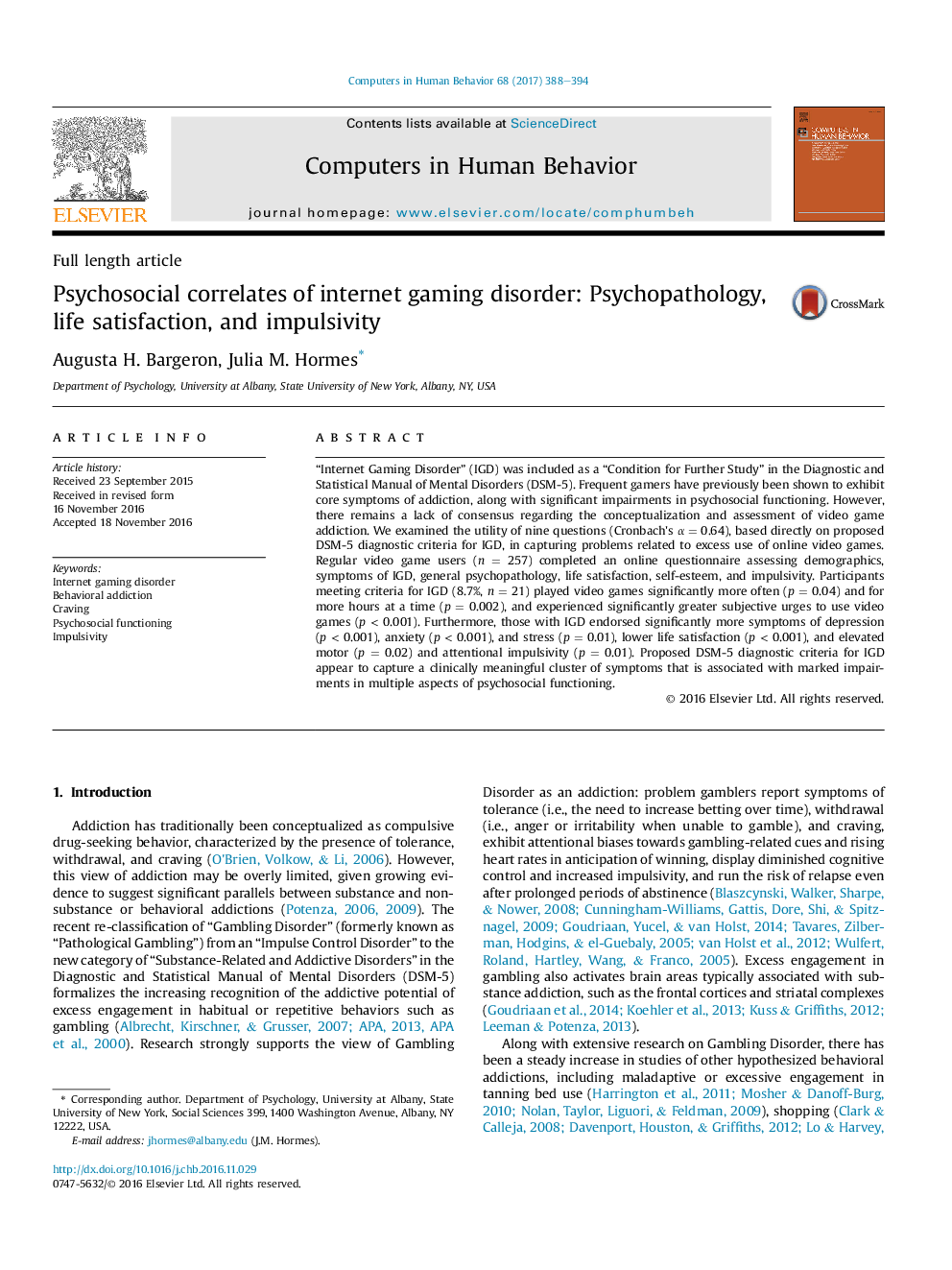ترجمه فارسی عنوان مقاله
همبستگی روانشناختی اختلال بازی اینترنتی: آسیب شناسی روانشناختی، رضایت از زندگی و تکانشگری
عنوان انگلیسی
Psychosocial correlates of internet gaming disorder: Psychopathology, life satisfaction, and impulsivity
| کد مقاله | سال انتشار | تعداد صفحات مقاله انگلیسی |
|---|---|---|
| 133375 | 2017 | 7 صفحه PDF |
منبع

Publisher : Elsevier - Science Direct (الزویر - ساینس دایرکت)
Journal : Computers in Human Behavior, Volume 68, March 2017, Pages 388-394
ترجمه کلمات کلیدی
اختلال بازی در اینترنت، اعتیاد رفتاری، میل شدید به، عملکرد روانی اجتماعی، تکانشی،
کلمات کلیدی انگلیسی
Internet gaming disorder; Behavioral addiction; Craving; Psychosocial functioning; Impulsivity;

